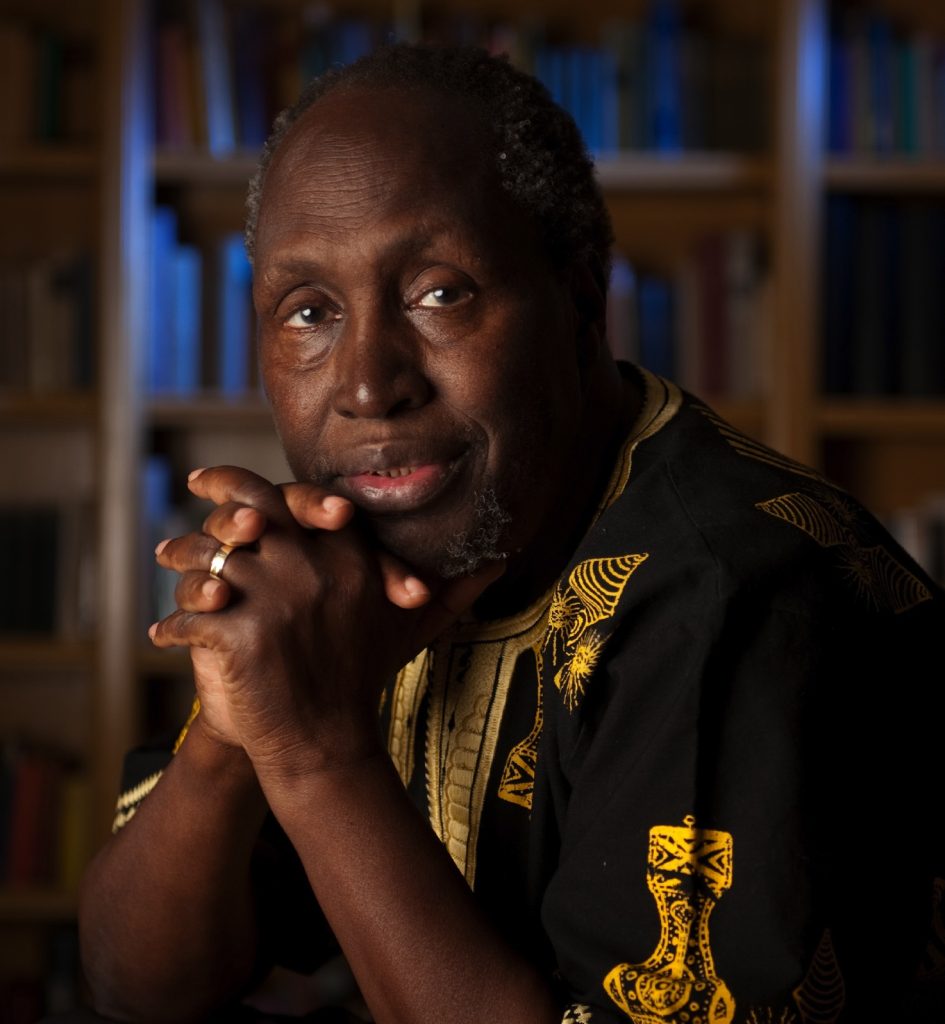Kenyans, leaders mourn distinguished linguistic Prof. Ngugi Wa Thiong’o

Kenyans and leaders have poured tributes to the fallen distinguished literary hero Prof. Ngugi Wa Thiong’o.
Ngugi died on Wednesday as confirmed by his daughter, Wanjiku wa Ngũgĩ on her social media platform.
In a moving message, his family said his wish was not for mourning, but for celebration.
Plans for a memorial service will be announced by his son, Nducu wa Ngũgĩ, in due course.
Prof Ngũgĩ wa Thiong’o’s voice may be silent now, but his words will echo for generations to come.
President William Ruto eulogised Thiong’o as a towering giant of Kenyan letters, always courageous, who made an indelible impact on how ‘we think about our’ independence, social justice as well as the uses and abuses of political and economic power.
“I have learnt with sadness about the death of Kenya’s beloved teacher, writer, playwright, and public intellectual, Prof Ngugi wa Thiong’o. In his bold and creative career, Prof Thiong’o showed us how to make contributions that cannot be ignored and speak in ways that both supporters and opponents cannot ignore,” he said.
Ruto said that Ngũgĩ’s patriotism is undeniable, and even those who disagree with him will admit that Prof Thiong’o’s discourse always sprang forth from a deep and earnest quest for truth and understanding, devoid of malice, hatred or contempt.
“Many Kenyans cannot remember a time when we were not united in the hope that Prof Thiong’o would finally receive the Nobel Prize for Literature, which we all felt he more than deserved. Be that as it may, he will always remain the champion of literary emancipation and innovation in our hearts and minds. May his family find peace and comfort in this period of mourning, and may Prof Thiong’o rest in eternal peace,” the head of state wrote on his Facebook page.
Deputy President Kithure Kindiki said Ngugi Wa Thing’o was one of Kenya’s finest public intellectuals admired by many across the globe, and those who disagreed with his views respected him.
“It is profoundly sad to learn of the demise of the distinguished Prof. Ngugi Wa Thiong’o. The world’s academia is left very much the poorer without this great son of Kenya,” Kindiki said on his Facebook page.
Former Deputy President Rigathi Gachagua said Prof. Ngùgì was one in many; a mentor, a teacher, a prolific writer, a poet, an honest man, and a great political animal.
“If a literary genius ever lived who has inspired my world of literary language and communication, may it be the use of symbolism, figurative language, metaphors, metonymy, poetry, that genius is Prof. Ngùgì Wa Thiong’o,” Gachagua said
Gachagua added that Ngũgĩ’ is the African literary champion who never shied from writing in his native language and his quest to tell the African story through the African lens.
Former Prime Minister and ODM leader Raila Odinga wrote “A giant African has fallen. Rest in Eternal Peace author Prof Ngugi wa Thiong’o.”
Ngugi Wa Thing’o was born from a humble background in 1938 in Kamiriithu, Limuru.
Ngũgĩ rose from humble beginnings to become a global literary icon.
Prof Ngũgĩ leaves behind a vast library of work that transformed African literature.
Weep Not, Child written in 1964 was the first English novel published by an East African taking place during the Mau Mau uprising and captured the trauma of colonialism through the eyes of a young boy.
The book was followed by ‘The River Between’ in 1965, a lyrical exploration of tradition versus modernity.
‘A Grain of Wheat’ of 1967, a complex, multi-perspective novel that examined betrayal and resistance on the eve of Kenya’s independence.
By the 1970s, Ngũgĩ had sharpened his political voice. His novel ‘Petals of Blood’ (1977) delivered a blistering critique of post-independence Kenya and led to his detention without trial. While in prison, he famously wrote ‘Devil on the Cross’ (1980) in Gikuyu, using toilet paper and a borrowed pencil–symbolizing his break from colonial language and his commitment to indigenous expression.
His other monumental works include ‘Matigari’ (1986)- a fable of revolution and false independence, ‘Wizard of the Crow’ (2006) – a satirical epic set in the fictional African nation of Aburĩria, and ‘Decolonising the Mind’ (1986) – a powerful essay collection defending African languages
Dreams in a Time of War (2010) – his memoir on growing up during colonial rule.
Prof Ngũgĩ was also a fearless activist and scholar. In 1977, he co-wrote the play ‘Ngaahika Ndeenda’ (“I Will Marry When I Want”) with Ngũgĩ wa Mirii, performed in Gikuyu by peasants and workers. The government saw it as subversive. He was arrested and imprisoned at Kamiti Maximum Prison for a year.
He later went into exile, continuing to teach and write from the US, notably at the University of California, Irvine. Despite decades abroad, Ngũgĩ always remained spiritually tethered to Kenya and to Africa.

